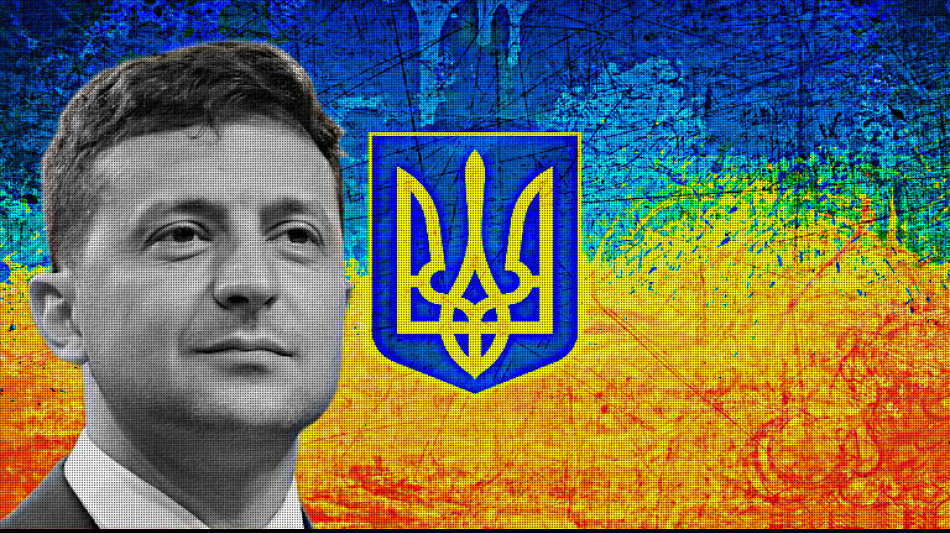-
 Dempsey returns as Scotland shuffle pack for Six Nations clash against France
Dempsey returns as Scotland shuffle pack for Six Nations clash against France
-
India pile up 253-7 against England in T20 World Cup semi-final

-
 Wary Europeans pledge 'defensive' military aid in Mideast war
Wary Europeans pledge 'defensive' military aid in Mideast war
-
Seven countries to boycott Paralympics ceremony over Russia: organisers

-
 UK's Crufts dog show opens with growing global appeal
UK's Crufts dog show opens with growing global appeal
-
PSG prepare for Chelsea clash with Monaco rematch

-
 Google opens AI centre as Berlin defends US tech reliance
Google opens AI centre as Berlin defends US tech reliance
-
Second Iranian ship nears Sri Lanka after submarine attack

-
 Portugal mourns acclaimed writer Antonio Lobo Antunes
Portugal mourns acclaimed writer Antonio Lobo Antunes
-
Union loses fight against Tesla at German factory

-
 Wales revel in being the underdogs, says skipper Lake
Wales revel in being the underdogs, says skipper Lake
-
German school students rally against army recruitment drive

-
 Wary European states pledge military aid for Cyprus, Gulf
Wary European states pledge military aid for Cyprus, Gulf
-
Liverpool injuries frustrating Slot in tough season

-
 Real Madrid will 'keep fighting' in title race, vows Arbeloa
Real Madrid will 'keep fighting' in title race, vows Arbeloa
-
Australia join South Korea in quarters of Women's Asian Cup

-
 Kane to miss Bayern game against Gladbach with calf knock
Kane to miss Bayern game against Gladbach with calf knock
-
Henman says Raducanu needs more physicality to rise up rankings

-
 France recall fit-again Jalibert to face Scotland
France recall fit-again Jalibert to face Scotland
-
Harry Styles fans head in one direction: to star's home village

-
 Syrian jailed over stabbing at Berlin Holocaust memorial
Syrian jailed over stabbing at Berlin Holocaust memorial
-
Second Iranian ship heading to Sri Lanka after submarine attack

-
 Middle East war spirals as Iran hits Kurds in Iraq
Middle East war spirals as Iran hits Kurds in Iraq
-
Norris hungrier than ever to defend Formula One world title

-
 Fatherhood, sleep, T20 World Cup final: Henry's whirlwind journey
Fatherhood, sleep, T20 World Cup final: Henry's whirlwind journey
-
Conservative Nigerian city sees women drive rickshaw taxis

-
 T20 World Cup hero Allen says New Zealand confidence high for final
T20 World Cup hero Allen says New Zealand confidence high for final
-
The silent struggle of an anti-war woman in Russia

-
 Iran hits Kurdish groups in Iraq as conflict widens
Iran hits Kurdish groups in Iraq as conflict widens
-
China sets lowest growth target in decades as consumption lags

-
 Afghans rally against Pakistan and civilian casualties
Afghans rally against Pakistan and civilian casualties
-
South Korea beat Philippines 3-0 to reach women's quarter-finals

-
 Mercedes' Russell not fazed by being tipped as pre-season favourite
Mercedes' Russell not fazed by being tipped as pre-season favourite
-
Australia beat Taiwan in World Baseball Classic opener

-
 Underdogs Wales could hurt Irish after Scotland display: Popham
Underdogs Wales could hurt Irish after Scotland display: Popham
-
Gilgeous-Alexander rules over Knicks again in Thunder win

-
 Hamilton reveals sequel in the works to blockbuster 'F1: The Movie'
Hamilton reveals sequel in the works to blockbuster 'F1: The Movie'
-
Alonso, Stroll fear 'permanent nerve damage' from vibrating Aston Martin

-
 China boosts military spending with eyes on US, Taiwan
China boosts military spending with eyes on US, Taiwan
-
Seoul leads rebound across Asian stocks, oil extends gains

-
 Tourism on hold as Middle East war casts uncertainty
Tourism on hold as Middle East war casts uncertainty
-
Bayern and Kane gambling with house money as Gladbach come to town

-
 Turkey invests in foreign legion to deliver LA Olympics gold
Turkey invests in foreign legion to deliver LA Olympics gold
-
Galthie's France blessed with unprecedented talent: Saint-Andre

-
 Voice coach to the stars says Aussie actors nail tricky accents
Voice coach to the stars says Aussie actors nail tricky accents
-
Rahm rejection of DP World Tour deal 'a shame' - McIlroy

-
 Israel keeps up Lebanon strikes as ground forces advance
Israel keeps up Lebanon strikes as ground forces advance
-
China prioritises energy and diplomacy over Iran support

-
 Canada PM Carney says can't rule out military participation in Iran war
Canada PM Carney says can't rule out military participation in Iran war
-
Verstappen says new Red Bull car gave him 'goosebumps'

Trump’s Crackdown: Lives/Risk
In a dramatic push to tackle the skyrocketing cost of prescription drugs in the United States, President Donald Trump has taken decisive action against the pharmaceutical industry. With the stroke of a pen, he signed an executive order designed to slash drug prices, promising relief for millions of Americans burdened by exorbitant healthcare costs. However, this bold move has sparked fierce debate, with critics warning that the consequences could be catastrophic—potentially costing millions of lives due to drug shortages and stifled innovation.
Trump’s Plan to Lower Drug Prices
The executive order, enacted on May 12, 2025, seeks to align U.S. drug prices with those in other developed nations, where medications often cost a fraction of what Americans pay. Trump has long criticized the pharmaceutical industry for what he calls unfair pricing practices, arguing that U.S. consumers have been overcharged for years. The order aims to reduce prices by 30% to 80%, targeting both brand-name and generic drugs. It relies on voluntary compliance from drug companies, with the threat of future regulations looming if they fail to cooperate. For many patients, this could mean significant savings on medications that currently drain their finances.
The Dark Side: Drug Shortages Loom
While the goal of affordability is laudable, the plan has raised red flags among healthcare experts and industry leaders. One major concern is the risk of drug shortages. The U.S. already faces periodic shortages of critical medications, such as those used in cancer treatments and epidurals. Forcing pharmaceutical companies to lower prices could make it unprofitable to produce certain drugs, particularly low-cost generics. If production slows or stops, hospitals and pharmacies could struggle to secure enough supply, leaving patients without access to life-saving treatments. The ripple effect could be devastating, especially for vulnerable populations like cancer patients and the elderly.
A Blow to Innovation
Beyond immediate supply issues, the executive order could deal a severe blow to pharmaceutical innovation. Developing new drugs is an expensive and risky endeavor, often costing billions of dollars and taking years of research. The U.S. market, with its higher drug prices, has long been a key source of revenue for this work. If that revenue shrinks, companies may cut back on research and development, slowing the creation of new treatments for diseases like Alzheimer’s, cancer, and rare genetic disorders. A healthcare economist recently cautioned that such a move could “delay breakthroughs that millions of patients are counting on,” trading short-term savings for long-term losses in medical progress.
Economic Fallout
The economic implications are equally troubling. The pharmaceutical industry employs thousands of Americans and drives significant investment in the U.S. economy. Lower prices could lead to job cuts and reduced funding for new projects. One major drug company has already hinted at rethinking its $50 billion investment in the U.S. if the order takes full effect. While consumers might save money at the pharmacy, the broader economy could suffer as a result.
The Case for Change
Despite these risks, supporters argue that action is overdue. Prescription drug prices in the U.S. are nearly three times higher than in other advanced countries, forcing many Americans to ration their medications or skip doses entirely. Lowering prices could save billions of dollars and improve access for those with chronic conditions like diabetes or heart disease. For these patients, Trump’s order represents a lifeline—a chance to afford the drugs they need to survive.
A High-Stakes Gamble
As the dust settles, the debate rages on. Will Trump’s crackdown on the pharmaceutical industry deliver on its promise of affordable healthcare, or will it unleash a cascade of unintended consequences? The order’s success hinges on cooperation from an industry reluctant to sacrifice profits, and its failure could leave patients paying the ultimate price. For now, the nation watches as this high-stakes gamble unfolds, with millions of lives in the balance.

EU: Prison for "paedophilia manuals" and child abuse forgeries

EU: 90% cut of all greenhouse gas emissions by 2040?

How is climate change spreading disease?

Business: Is it important to speak multiple languages?

Trump's return could leave Europe 'on its own'

NASA and Lockheed partner present X-59 Quesst

China: Gigantic LED in a shopping centre

Did you know everything about panda bears?

Ukraine has a future as a glorious heroic state!

To learn: Chinese school bought an Airbus A320

Countries across Europe are tightening security measures




